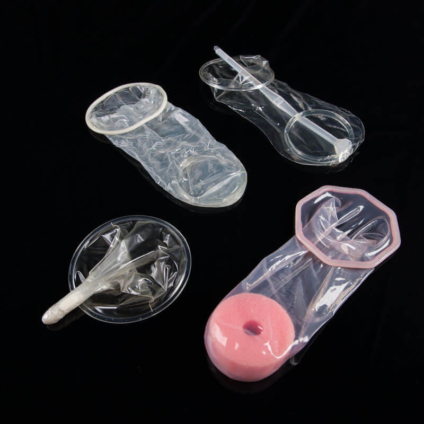Deputy Programme Manager of the National AIDS/STI Control Programme (NACP), Dr. Anthony Ashinyo, has disclosed that almost 50,000 female condoms have
Deputy Programme Manager of the National AIDS/STI Control Programme (NACP), Dr. Anthony Ashinyo, has disclosed that almost 50,000 female condoms have expired due to low patronage.
In an interview with the Ghana News Agency, Dr. Ashinyo explained that the expired condoms were part of large consignments procured to promote safer sex among women, but low demand left many unused.
“We bought a lot of female condoms in the past, but they were not being used. Over time they expired, and we had to discard them. Now, procurement is done in very small quantities because the demand is not there,” he said.
Dr. Ashinyo attributed the low uptake to deep-seated social and cultural perceptions, noting that many women view the use of female condoms as a sign of mistrust or promiscuity.
“Many women believe that wearing female condoms means they cannot be trusted by their partners, so they prefer to rely on male condoms. The desire and interest to use female condoms are simply not there,” he added.
He also raised concerns about misuse, revealing that some women remove the rims of the condoms to make bangles or decorate clothes, while others complain about discomfort and overstimulation during use.
According to Dr. Ashinyo, declining condom use—particularly among women—poses a serious threat to Ghana’s efforts to combat sexually transmitted infections (STIs), including HIV.
“Condoms are a biomedical protective tool that collect secretions containing viruses. When people do not use them, those secretions come into direct contact during intercourse, increasing the risk of infection,” he cautioned.
He noted that the low demand has disrupted the supply chain, with pharmacies and health facilities now stocking fewer female condoms. Dr. Ashinyo called for renewed public education to dispel misconceptions and encourage use as part of national HIV prevention efforts.
Data from the 2024 National and Sub-National HIV and AIDS Estimates and Projections Report shows that about 334,721 people are currently living with HIV in Ghana, with 15,290 new infections and 12,614 AIDS-related deaths recorded last year.
Director-General of the Ghana AIDS Commission, Dr. Kharmacelle Prosper Akanbong, also expressed concern over rising infections among the youth, attributing it to complacency and declining condom use.
To address the trend, Dr. Akanbong said plans are underway to install condom dispensing machines in public places such as transport terminals, university campuses, and youth events to increase accessibility.
“A person living with HIV still fears disclosure, ostracism, and uncertainty about their future. We must challenge this,” he urged, calling on Ghanaians to show compassion and respect toward people living with HIV.
Globally, HIV has claimed an estimated 44.1 million lives as of July 2025, according to the World Health Organization (WHO). The agency notes that while transmission remains widespread, effective prevention and antiretroviral therapy continue to offer hope in reducing new infections.
